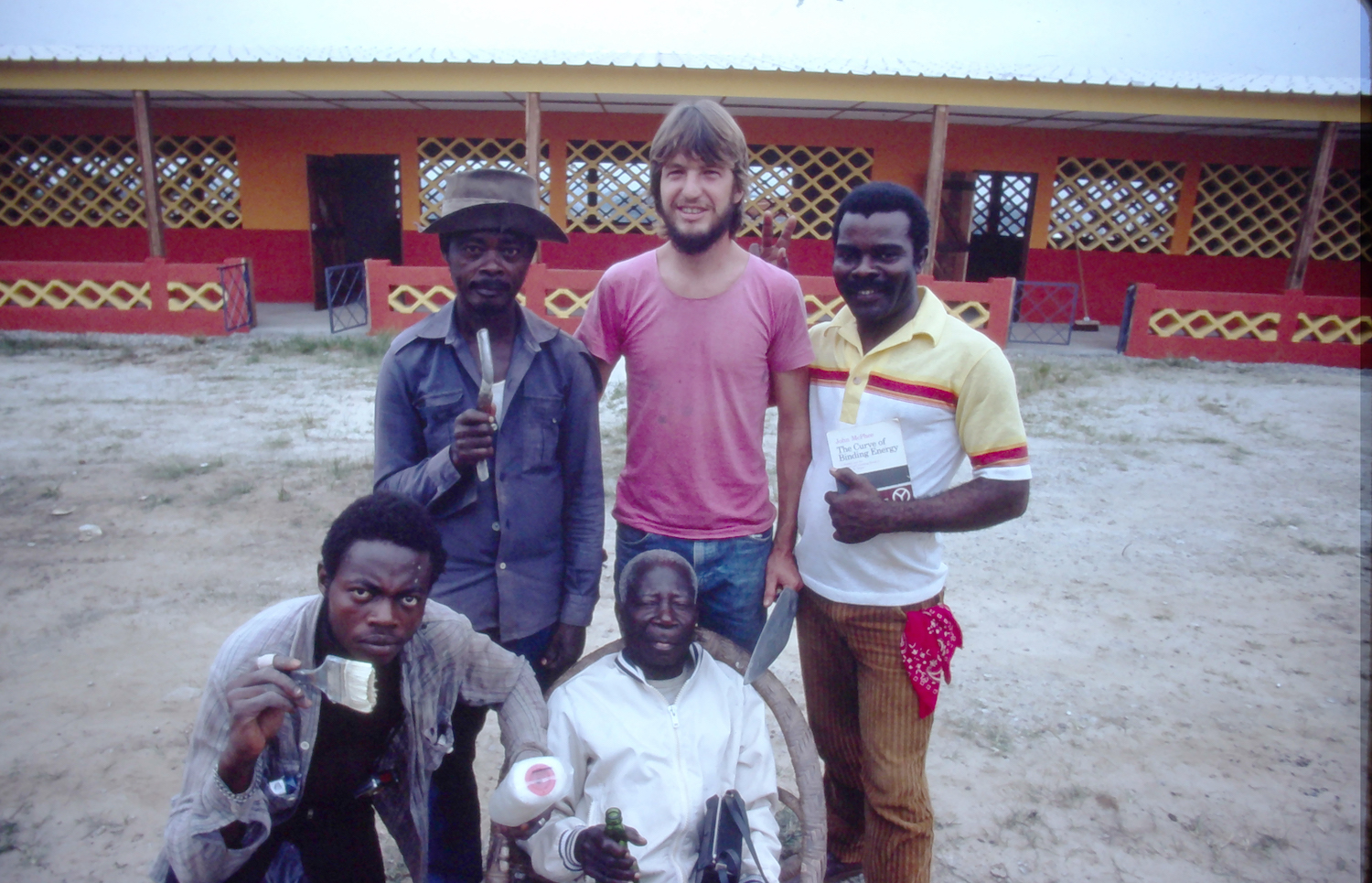Paul Holloway on Oct. 3, 2022 discussing Claire’s Arch, a mortarless structure he built in Mound House after being inspired by his daughter. It took 15 years to plan and build. Photo by Scott Neuffer.
 Paul Holloway in Gabon circa 1980. (Photo courtesy of Northeast Masonry)
Paul Holloway in Gabon circa 1980. (Photo courtesy of Northeast Masonry)